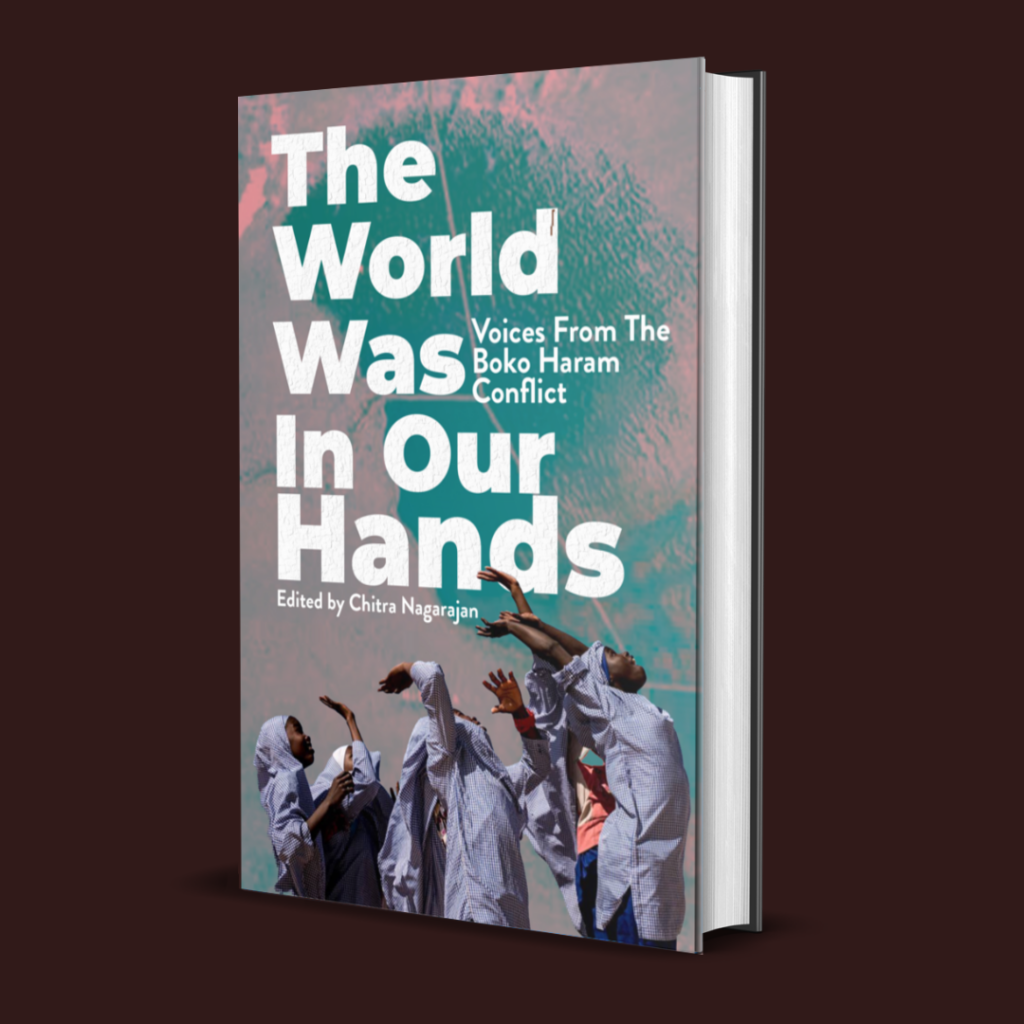Conflict, it seems, is an inescapable part of the human condition. Today, we have tragedies live streamed to us 24/7, whether it is from Palestine or Sudan or Congo. Technology now allows us to see into the daily lives of people living in conflict zones, in a way that has not previously been possible. Ten years ago, #BringBackOurGirls captured global attention; all eyes were on the extremist group Boko Haram, and the humanitarian emergency that touched not only Nigeria, but neighbouring Niger, Chad and Cameroon. Boko Haram continues to make headlines globally, but distance and desensitisation inevitably hit. The human cost behind each new headline can be readily forgotten. For some people, their understanding of the conflict begins and ends with the Chibok girls.
Why do personal narratives matter?
Author, Chitra Nagarajan addresses this in her forthcoming book, The World Was in Our Hands: Voices from the Boko Haram Conflict, a moving collection of first-hand accounts documenting the lives of the people living through the conflict. In this book we hear from abducted girls, fishermen, the LGBTQ+ community, soldiers who are at the fore of this fight and many more, capturing the depth of human suffering and resilience. We see how patriarchy, the economy, climate change, and corruption have impacted these lives, painting a picture that is much broader than what news coverage alone can show.
| “We have witnessed so many incidents in Maiduguri that we will never forget. I will tell my children and grandchildren how our life was beautiful when I was growing up. Borno really was the home of peace. During weddings and at school, we had programmes where we played music in our languages and danced. We Kanuri in our dress. The Babur in theirs. The Igbos in their own. And so on.” |

The World Was In Our Hands gives a voice to the voiceless, honouring the lives of those affected by ensuring that their experiences are acknowledged and remembered. Archiving is a powerful act, especially on a continent where so much of our history has been stolen from us. As Chitra notes in her acknowledgment, “If you’re reading this in five, fifty or two hundred (!) years’ time, I hope this book has provided you a glimpse of past realities, that your homes, libraries, minds, and public spaces are full of art, books, poetry, oral histories, and theatre created by the people of the region, and that your future is a lot more equitable, just, and peaceful than our present.”
The World Was in Our Hands: Voices from the Boko Haram Conflict comes out this October and is now available to pre-order.
